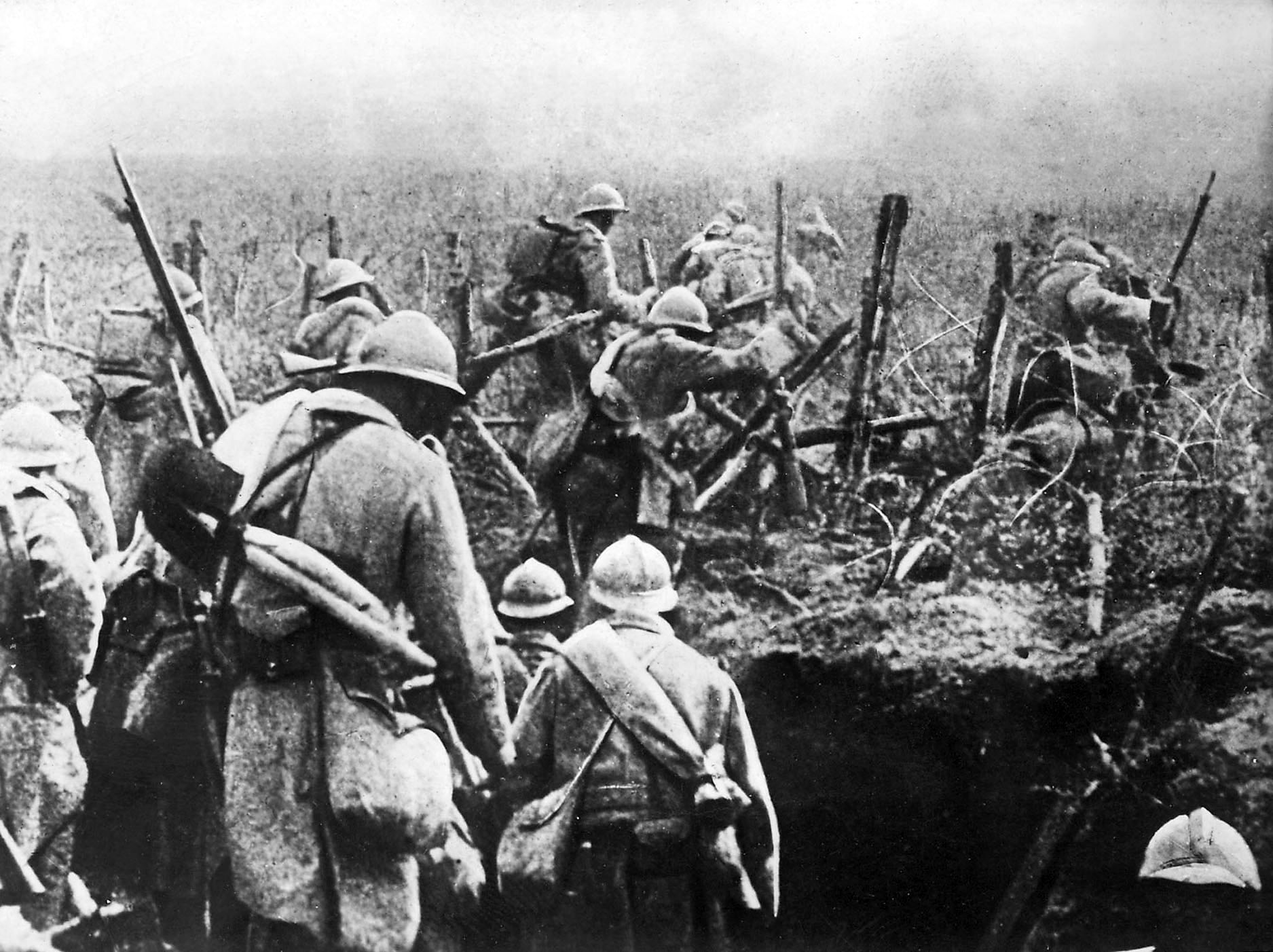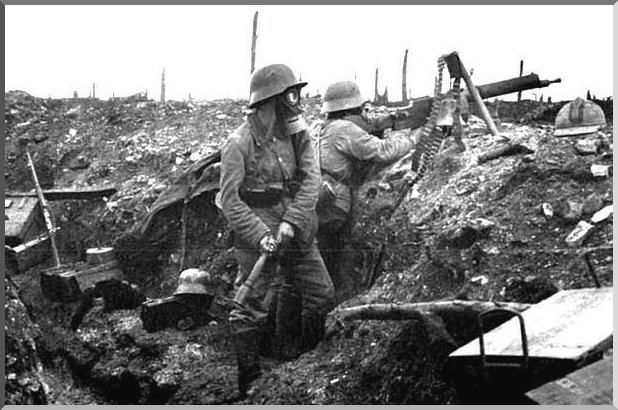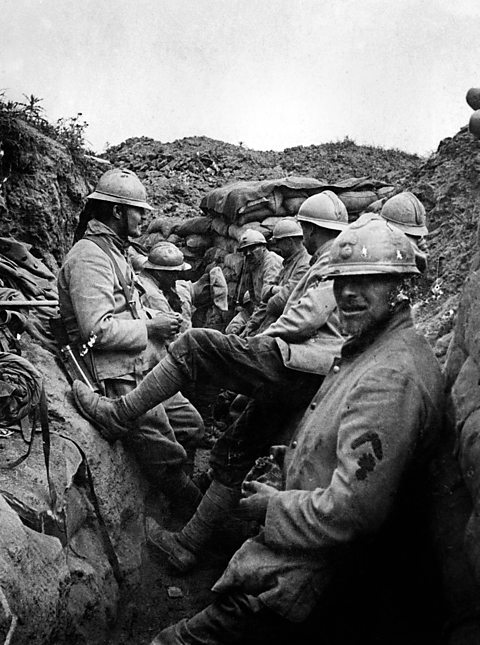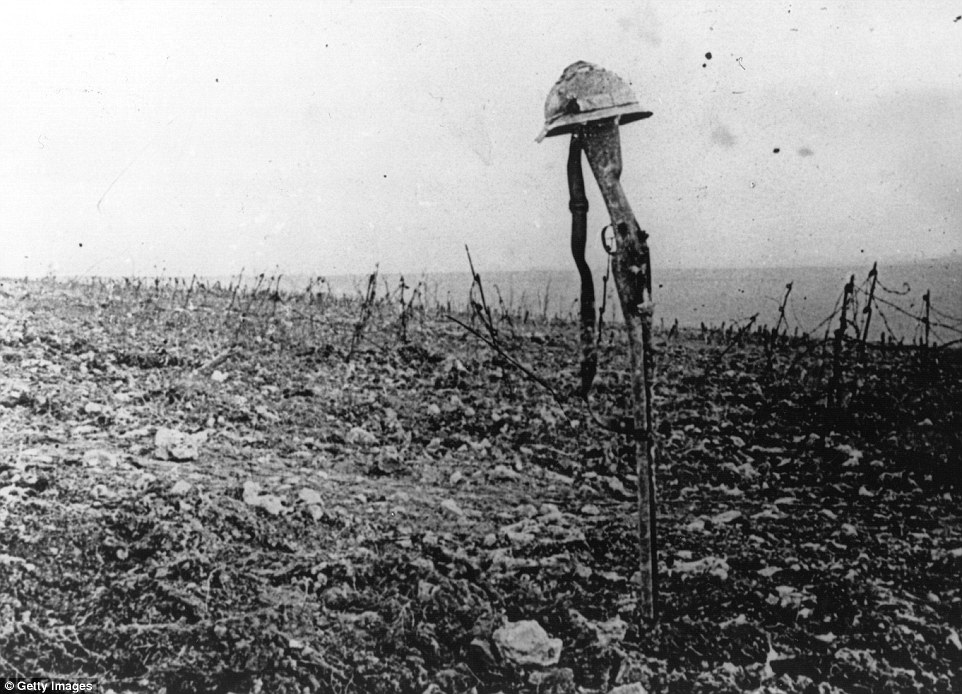Pace of Fighting On the Rise.
Verdun and the Somme Still Key Flashpoints.
Thousands of German Prisoners Taken
Special to The Great War Project
(24-30 October) Increased military activity breaks out on both the Western and Eastern Fronts.
At Verdun on the Western Front, the confrontation between French and German troops has been static for much of the year. By these days a century ago, Verdun is turning out to be one of the longest – if not the longest – battle of the war so far.

French soldiers in the Verdun trenches, 1916.
But the stalemate there is about to change.
On October 24th a century ago, “the French took their first offensive action of the year,” writes historian Martin Gilbert. They recapture the strategic stronghold of Fort Douaumont, outside Verdun, taking 6,000 German prisoners in the process.
Until this moment in the war a century ago, the Germans have had the advantage at Verdun. An earlier German offensive there, writes historian Michael Neiberg, “caught the French by surprise,” and forced the French to take the situation at Verdun more seriously than they had intended.
“Both sides,” observes Neiberg, “soon fed all their resources into a battle whose symbolic value became greater than its military importance.”
Earlier in 1916, the Germans “unleashed the most powerful artillery assault in history,” according to Neibert. “In six days the Germans fired more than two million shells, some of them filled with poison gas.” The Germans also make extensive use of flame-throwers.

German troops wearing gas masks at Verdun, 1916.
“They fired another two million in the subsequent ten days,” and they have control of the skies.
By this moment a century ago, the battle for Verdun is exhausting the French. It looks like the French defense at Verdun is about to collapse.
Then the French make key strategic moves. They change commanders, sending General Philippe Petain to reorganize the defense of Verdun. “They Shall Not Pass” becomes the watchword of the French defense there.
“The Battle of Verdun quickly took on a life of its own,” writes Neiberg. “Both sides saw it as essential as much for morale reasons as for sound military reasons.”
The reorganized defense works. It prevents Verdun from falling into the hands of the Germans. But for most of 1916, the battle for Verdun evolves into a “bloody struggle of attrition with limited territorial gain.”
The French mount some effective infantry attacks, and by the autumn of 1916, their effort turns into “a general offensive using new methods of infantry attack.”
When the French retake Fort Douaumont precisely a century ago – and especially when the French take some 6000 German prisoners, they suspect, according to historian Neiberg, that German morale is about to crack.

French trenches at Verdun.
It does not, and the battle for Verdun grinds on.

Helmet and rifle mark where a soldier fell, Verdun, 1916.
Still the effort at Verdun is proving to be a disaster for the Germans. At the start, they believed they would suffer only light casualties, writes historian Alexander Watson.
That is a colossal misjudgment.
From the start of the battle, in February 1916, until the autumn of the same year, the Germans lose more than 310,000 men killed or wounded. The numbers for the French army are even higher, Watson estimates.
At this moment in 1916 one hundred years ago, winter approaches and begins to be a more potent factor throughout the Western and Eastern Fronts. The Allies are on the offensive, but bad weather slows them down. And it gives the Germans a breather, observes history Gilbert.
“His artillery is better organized,” writes one British general, “and his infantry is fighting with greater tenacity, but deserters continue to come in…
…and the more we bombard, the more prisoners and deserters we get.”
“I should like therefore,” writes the British general, “to be more or less aggressive all the winter but we must not take the edge off next year.”
“A week later,” reports Gilbert, “the British captured a thousand German prisoners.”

Terrible and wonderful, Mike. Excellent work.